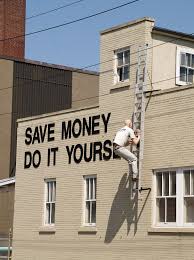After postponing it many times for various reasons, we decided to have a panel discussion on the topic of self publishing, during the fourth edition of Publishing Next, held during the recently concluded World Book Fair. The panel discussed why we might see more people sign up for self publishing in the coming years, and how these authors might come to expect more from this option. Many traditional publishers have either set up or are contemplating a self-publishing arm, a phenomenon that was widely attributed to the fact that these publishing houses do not want to miss out on what is a growing trend, maybe even to identify new authors for their traditional publishing programme.
 Like one speaker pointed out, traditional publishers have only one thing going for them – their control of existing distribution mechanisms. That too is a fast waning advantage, especially with so many distribution options being available online. If the Internet does indeed become the leveller it promises to be, will traditional publishers still survive? And what is to be said of companies that provide self-publishing services? Will they still be relevant?
Like one speaker pointed out, traditional publishers have only one thing going for them – their control of existing distribution mechanisms. That too is a fast waning advantage, especially with so many distribution options being available online. If the Internet does indeed become the leveller it promises to be, will traditional publishers still survive? And what is to be said of companies that provide self-publishing services? Will they still be relevant?
Although the quality of self-published books was discussed only peripherally during the panel discussion, it is rather obvious that self-publishing will be taken seriously only if books of good quality are published via that option. At some point in the near future, the discussion will be about good books versus bad, not about traditional publishing versus self publishing as is the case today.
What makes a well-written book a still better book are perhaps the editor’s inputs and suggestions. They not only help correct the obvious grammatical and spelling mistakes but also can help tighten the narrative, fill in missing blanks and even tailor a book for its intended audience. More than distribution, it is these editorial inputs that are, perhaps, the greatest contribution a traditional publishing house makes to any book. A self-publishing author should therefore take all the editorial help she can get in her goal to improve the book.
At CinnamonTeal Publishing, we encounter a lot of resistance from the author when it is suggested to her that she should have her book edited. Understandably so, especially when an author has spent a lot of time on the manuscript, writing it first, then perhaps re-writing many drafts. However, it helps to have another pair of eyes look at the manuscript. Such a trained pair of eyes will immediately spot the errors that are easy to miss, identify inconsistencies in the narrative and recognize if the author has been rambling on for too long. A good editor will look at the manuscript objectively and will be solely concerned with improving the book. The author should take the editor’s suggestions in the right spirit especially since it is her book that is being improved.
Self-publishing does not mean that the author has to do everything alone, rather it means that the author has to do everything in her power to develop a good book, especially if it can be developed by employing the best resources available to her. For that reason, I am not convinced that accessible platforms like KDP will necessarily lead to good books being published on such platforms. In fact it might tempt the author to impulsively publish an unedited manuscript with an amateurish cover. Such impulse cannot be good for the book, or even for other self-published authors, despite the predictions of an incredible explosion in self publishing. There are many options available that allow an author to crowdfund and crowdsource a book. These options are easily accessible and could benefit an author immensely.
Self-publishing can indeed be a good thing, if properly executed and by putting the best available resources to use. Its benefits are many, especially when combined with print-on-demand. The author simply needs to ensure that everything she does is in the interest of developing a good book. One that is written well, free of errors, laid out nicely and has a beautifully designed cover.